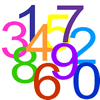We sometimes have unsolved problems which require solutions. If there are any below, do consider having a go at them, and send us your solutions.
You may be interested in the article we have written, which explains what we are looking for when we decide which solutions to publish.
The value of two
Ruth Trundley outlines her doctoral research and concludes that development of an understanding of cardinality is a crucial element of counting that can be overlooked.
Developing number through tidying up
Mathematical problem solving in the early years: developing opportunities, strategies and confidence
In this article for Early Years practitioners, Dr Sue Gifford outlines ways to develop children's problem-solving strategies and confidence in problem solving.
Young children's mathematical recording


Curriculum

TSA NRICH Day October 31st 2018




Early number sense
Subitising
In this article for EY practitioners, Dr Sue Gifford outlines what we mean by subitising and how we can teach it.

Features
Place value: the ten-ness of ten

Rich mathematics

How can I support the development of early number sense and place value?
This article for primary teachers expands on the key ideas which underpin early number sense and place value, and suggests activities to support learners as they get to grips with these ideas.

Recent solutions
Dot card games
The importance of shape and space in the early years
Models in mind
Maths at home
Pattern and structure

Related teacher playing with shape
Using dice games in the classroom

Maths at home
Welcoming your new class

Working with a grown-up?
Geometric thinking - teacher articles
Getting the balance right
Encouraging primary children to work systematically
ACME report: developing able young mathematicians
Lynne McClure gives an overview of the ACME report 'Raising the bar: developing able young mathematicians', published in December 2012.


Primary children's mathematical recording


Maths at home - summer challenges 2024

A good foundation for number learning for five year olds?
Red or black spinner
Seesaw shenanigans
A group of animals has made a seesaw in the woods. How can you make the seesaw balance?

Full list of books


Number books

Geometry books

Measures books

Tasks for an adult and child

Full book list

Can you play strategically?

Compare to pair
Developing logical thinking: the place of strategy games
Starting the term with rich tasks
Integrating rich tasks - activity 3
Creating a low threshold high ceiling classroom


The development of spatial and geometric thinking: the importance of instruction
This article looks at levels of geometric thinking and the types of activities required to develop this thinking.
Mechanics in the primary years
Hidden gems
Two stones
This game is known as Pong hau k'i in China and Ou-moul-ko-no in Korea. Why not challenge a friend to play it with you?
Being resilient - lower primary geometry
Exploring problem solving, reasoning and fluency in a geometrical context

Play to win



More lower primary number pattern tasks
Understanding information
Supporting students to work collaboratively
This page, and the accompanying webinar recording, suggests ways in which teachers can help students to work more collaboratively.

Becoming a better mathematician
What is the question?

Matching
Place your counters...
Always, sometimes or never tasks
Integrating rich tasks - activity 4.1
Placing our trust in learners

I'm stuck but ....!
On what day did it happen?
Creative approaches to mathematics across the curriculum
Sz'kwa
Being resilient - lower primary statistics
Celebrate 25 years of NRICH
To celebrate NRICH's 25th birthday, why not play this special version of our classic game, Got It? Can you devise a strategy so that you will always win?
Exploring the geometrical strands of the National Curriculum in a problem-solving context

Reasoning
Number sense and place value


Developing mathematical thinking - Exploring and noticing
This page, and the accompanying webinar recordings, draw attention to the value of offering learners opportunities to explore and build on their discoveries.
More playing with number lower primary
Scissors, paper, rock Chinese style
Try the Chinese version of this well-known game with a friend. Great to play in the garden or in the park.



